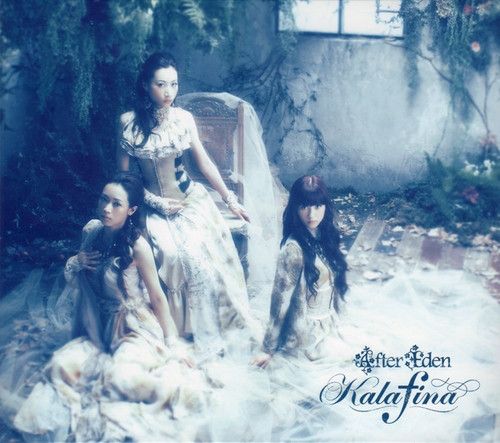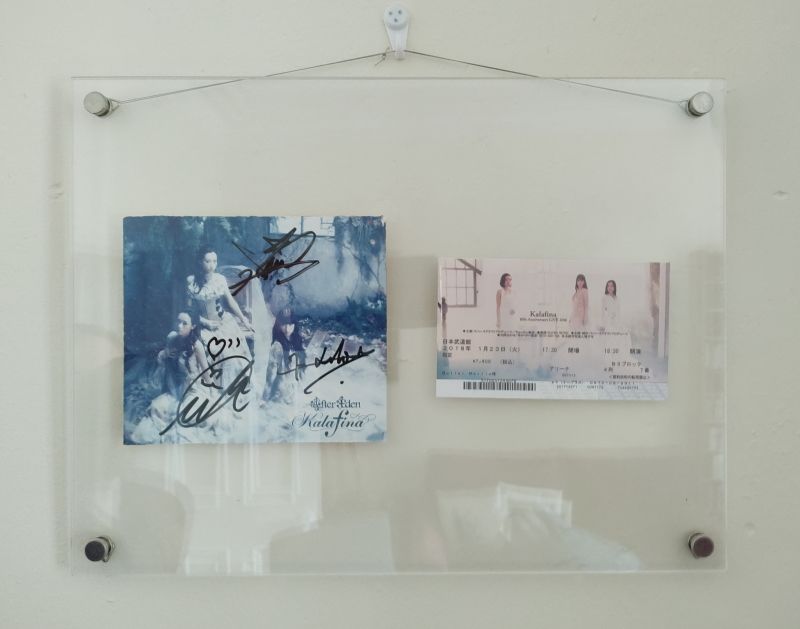A Tenth Anniversary Retrospective on After Eden
Ten years? Already?! Realising that After Eden was released a full decade ago today was one of those “OH F*** I’M OLD T_T” moments, honestly. I know that the pandemic has messed with our sense of time, but still. *whispers: yes, I’m old*
Anyway.

I must confess that I didn’t quite know what to make of it on my first listen, although I also had other things on my mind at the time*. The opening track, Eden, is arranged in an unusual time signature that has a different cadence to the standard 4/4 or Yuki Kajiura’s favoured 6/8 , so it took some getting used to. I’ve sadly lost the link, but I recall someone suggesting that the song is in 6/4. My own knowledge of music theory is limited, but it does sound like 6/4 to me.
Much like how Hikari no Senritsu is a little different in atmosphere from the rest of Red Moon, Magia has a heavier vibe that sets it apart from the floral, pastel-shade aesthetic of the rest of the record. Their first two albums are generally “darker” and end with soothing ballads, but Symphonia concludes After Eden on a bolder and more triumphant note. It gives an impression of increased confidence and a slight change in direction.
Overall, the three-way vocal harmony takes a step forward in terms of technical virtuosity, an even stronger emphasis is placed on piano, strings and acoustic drums, and there’s less of the synthesizers and programmed percussion that Kajiura used in the studio for their first two albums. The only obvious use of synths and drum machines is in Magnolia, which wouldn’t really sound the same without them.
I suspect there was a conscious decision to address the question, “how can these be performed with a live band?” because the songs on this album could be recreated in concert with minimal changes to the arrangements. I’ve recently covered this after listening to a recording of one of their early live shows, but this approach is different from how they were being recorded back then. It comes at the cost of some of the spontaneity and also creates a different sound, but it does help to maintain consistency between the studio recordings and the live performances.
Whether you love it, hate it, or haven’t even watched it, the Madoka Magica anime was hugely important in raising the band’s profile. They were involved in several other big projects, of course: they had formed for The Garden of Sinners and later worked on the Fate/Zero and other Fate… adaptations that followed, but Magia is possibly the song that they’re best-known for.
Is this a good thing or not? I’m going to bottle out and say it’s a bit of both. Much like genre labels, it’s helpful until it becomes limiting. It probably got their name more widely recognised and helped the sales figures too, but greater success often brings a heavier weight of expectation. There’s pressure from outside to produce better results, and when an opportunity presents itself there’s also an incentive for the members to grow as artists.
This is probably a controversial opinion, but After Eden seemed a little…rushed. I don’t mean this in terms of songwriting or audio quality: the production is polished and professional, and there’s no sign of writer’s block in the variety of the songs. Kajiura’s output during 2011 was prolific (she released her second solo album Fiction II in the same year), but it’s fair to assume that Kalafina was occupying a lot of her time.
There were however some tell-tale signs that releasing a full-length album the year after their previous one took its toll. I only noticed many of these things afterwards and they didn’t affect each band member at the same time, but the pressure seemed to catch up with them all eventually. Hikaru later received some criticism for her performances in 2015’s “Red Day” and “Blue Day” live shows, and Keiko recently stated that one of the reasons for her hiatus following their disbandment was concern for her own health. Wakana was struggling at live performances during the promotion of After Eden (the “Special Live 2011” DVD/blu-ray for instance), and she admitted in a Kalafina Record interview that not long before this, she considered quitting the band altogether.
This was I think a difficult time because it forced them to push themselves…perhaps too hard, and to follow a schedule that wasn’t sustainable. Nevertheless, it also encouraged Wakana to reassess her personal goals, and it introduced the band to a wider audience. In terms of publicity, it made sense to capitalise on the momentum and existing exposure, albeit putting a temporary strain on them and potentially setting up problems later on. The more successful they became, the more demand was placed on them.
Whether there were serious issues behind the scenes, and whether they were a contributing cause of future difficulties, the album was still successful: it peaked at #3 in the Oricon charts when Seventh Heaven and Red Moon had previously reached #8 and #5 respectively. Most of the songs were replaced by newer tracks in later tours, but this was the “gateway album” for many fans. Symphonia for example was still popular enough at the time of their tenth anniversary concert to be included in the set list.
Nobody can predict where one career decision takes you, and it often only becomes clear with hindsight. To me, After Eden’s legacy is a positive one. The three of them did indeed overcome their personal troubles, and continued to perform and record together for many years. For those of us who were in the fan community already, we had new people join us to share the experience. Even when some of these tracks are largely forgotten to all but a dedicated minority, it’s great to know that there are people out there who discovered them because of these songs, and continue to follow the band members’ careers afterwards.
*I happened to be in Tokyo on the day that the album was released. I hadn’t planned it that way; some friends of mine had already suggested a mid-September holiday, so I decided to buy it on CD from the pop-up shop in Shibuya and listen to it on release day.
Unfortunately, September is also in typhoon season. The promotional events still went ahead, but I had to be talked out of walking through the gale-force winds and torrential rain to attend a release-day autograph session. A lot of the trains were temporarily shut down in the afternoon because of the weather, so my friends were probably doing the right thing when they dragged me back to the hotel. We sat in the lobby with some beers, and watched the wind and rain raging outside. Even now, the songs on this album remind me of the sunny, clear weather of the following day, after that storm had passed, when we could get back to sightseeing.
Thankfully, the band were invited as guests to the AnimagiC convention in Bonn and made their first visit to Europe the following year, so I was finally able to meet them in person. Better late than never, huh?

